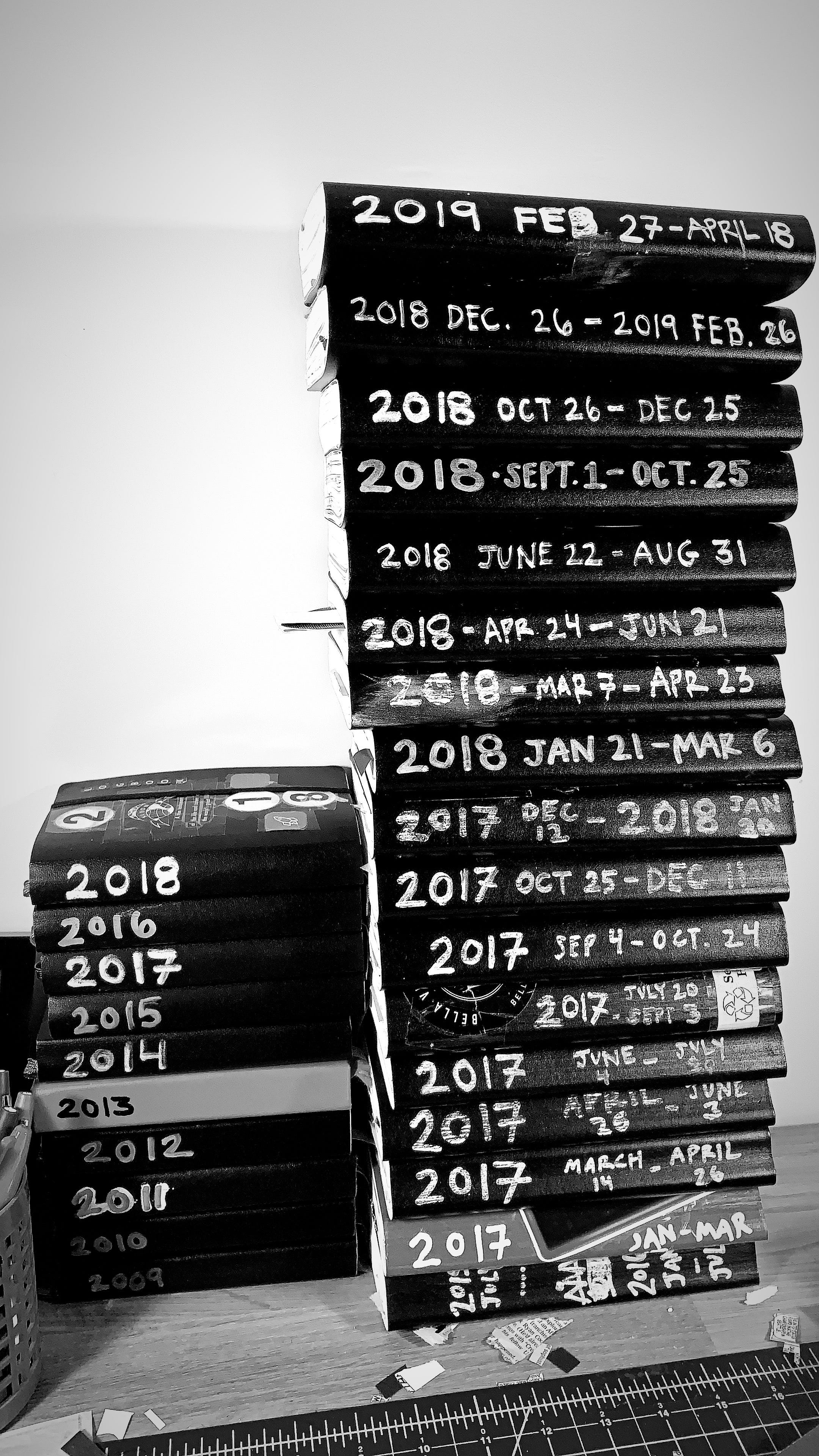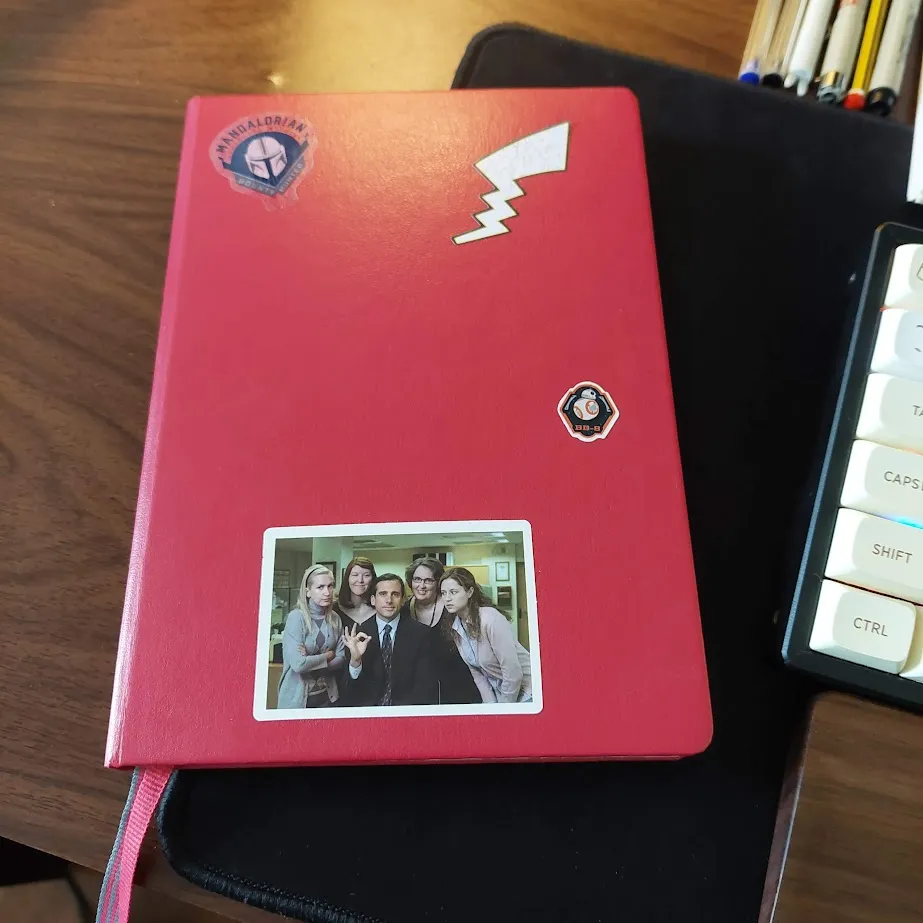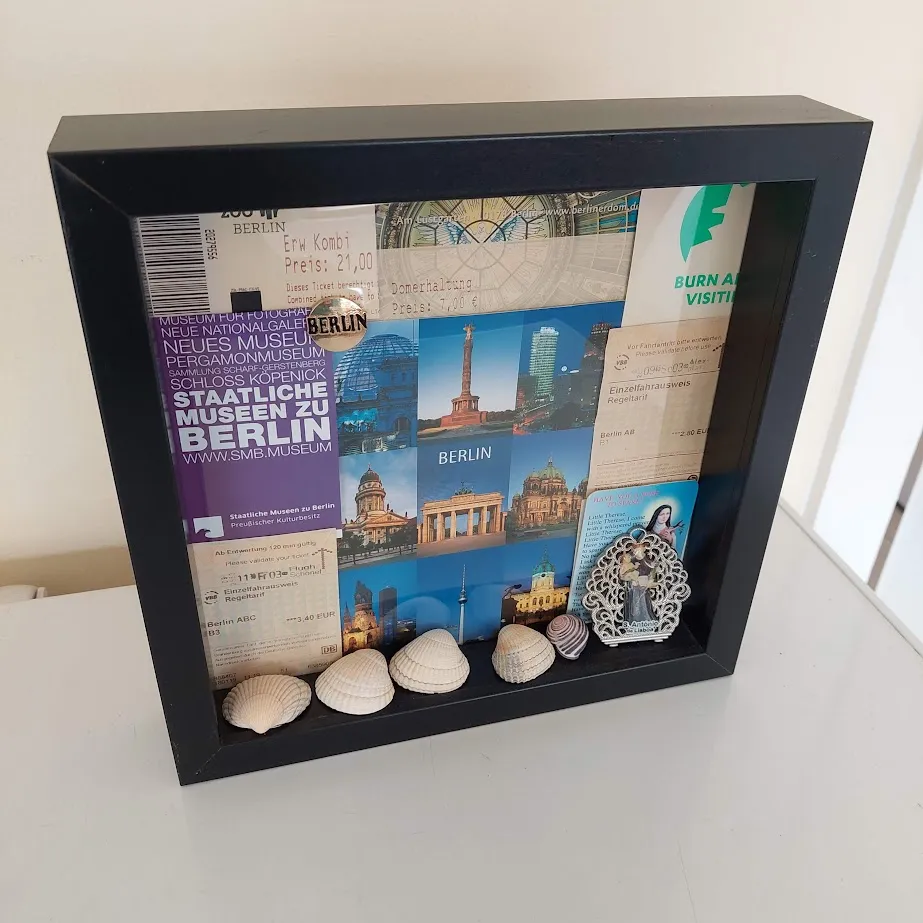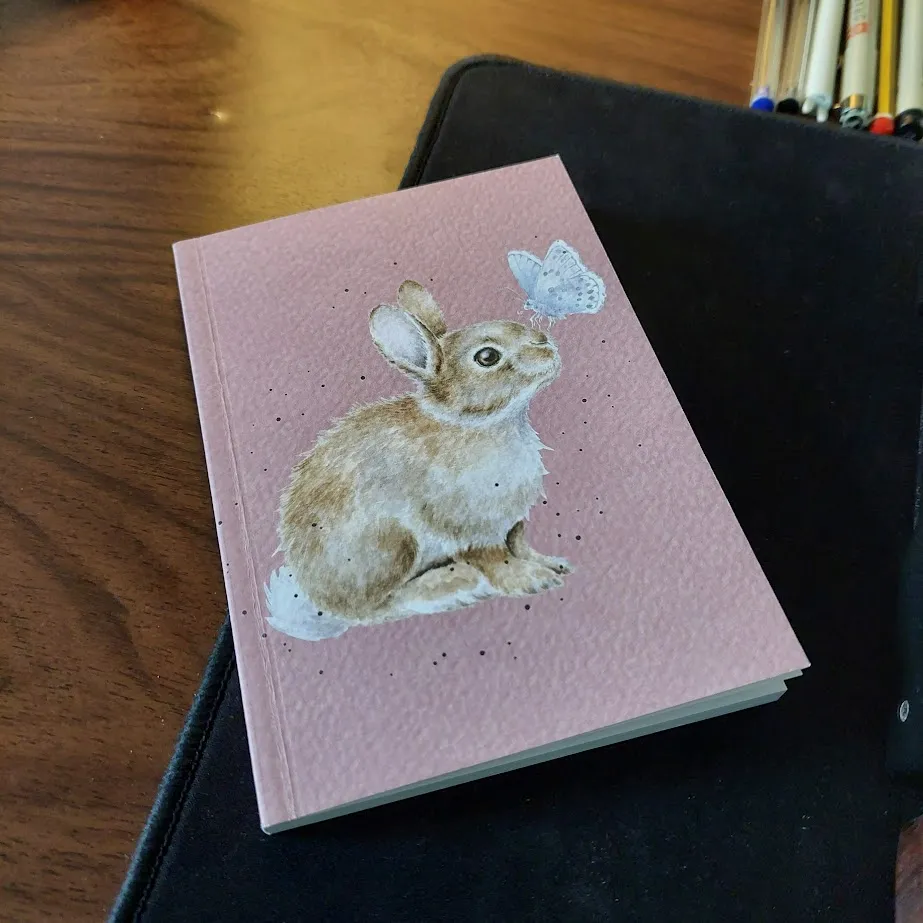The desire to document and collect
A version of this post first appeared in my newsletter. Subscribe to receive posts like this in your inbox every Friday.
The desire to document and collect must be something in our nature as humans.
I recently watched the Pamela Anderson documentary on Netflix and was struck by everything she kept over the years. Every diary, scrap of paper, videotape, piece of clothing, and shoes (lots of shoes). Every memory was saved and stored away in plastic boxes which she delved through during the filming.
I’ve also been reading a lot of Austin Kleon’s work recently. He keeps all his diaries on a shelf in his office. When he’s stuck for inspiration or what to write, he opens an old diary to a random page and starts reading.

The days stack up - Austin Kleon
Austin also wrote a piece about comedians like Joan Rivers keeping all the jokes they’d written in big filing cabinets to use as a reference. If you’ve ever read How To Take Smart Notes the filing cabinets will likely remind you a lot of the Zettelkasten system.
The urge to document has always been strong in me too. I used to keep diaries from a young age and write in them every day.
Unfortunately, in my case, I never kept any of them.
I suppose the reason is I felt like they weren’t good or weren’t important enough. Most of my documentation included who I talked to at school that day, what I was watching on TV, and what fun games we were playing in the nearby park. Boring stuff to my current self.
Now that I’ve restarted a daily journal practice I wonder if I’ll face the same decision when I’ve filled up my current journal. Is any of this work holding on to or should I throw this away?
As I flick through my Pink Leuchtterm 1917 Bujo (from the time I got really into bullet journaling), I realize it’s a time capsule from the time of the height of the pandemic.

What I was feeling, what I was doing each day, who I was in contact with, as well as various milestones we faced including the period of time when we weren’t allowed to travel further than 5kms from our homes. God knows if I’ll ever experience that again in my lifetime (no thank you).
With all this in mind, I wanted to take a deeper dive into the topic of documenting/journaling to see what more I could learn.
Limiting belief: my journal entries are boring for my future self
This article from Charley Locke captures my feelings exactly about why I can never seem to stick with journaling: Commonplace Books Are Like a Diary Without the Risk of Annoying Yourself - The New York Times
“I can’t help reading whatever I’m writing as some future-me would, rolling her eyes, condescending from the other side of whatever dilemma I’m going through.”
Instead of traditional journaling, Locke keeps a commonplace book. He writes down any quotes or sayings that resonate with him in this book. When he reflects back on these entries in the future it’s a less direct way of looking at himself.
As he describes:
“… (it) is more like looking at myself out of the corner of my eye”.
Examples of other people who document or collect things
Reading this article from Austin Kleon reminded me how much I enjoy examining the little details in older things: What you think is boring now may be interesting in the future - Austin Kleon
Things that were of trivial importance in the past like old street signs, clothing, and especially old tech are fascinating to me today. When I see old signs or old tech in movies it immediately grabs my attention and I want to know more about it.
This article also helped me to realize that documenting doesn’t just have to be about writing. It can also include photos, old receipts, postcards, or anything that sparks that memory in your mind.
I already do this it turns out (or at least I used to before the pandemic). I used to put together a fun shadow box after each vacation. When I got home, I’d gather everything I’d collected and create a fun collage inside of a shadow box picture frame bought in Ikea. These still sit in the kitchen and remind me of those trips away.

Documenting your day to help your future self
Another use for keeping a journal or documenting your day is as a reference for your work. Documenting the work projects you completed, the steps involved, and who you worked with are all key pieces of detail you can use in case studies or to prepare for a job interview/review meeting.
In digging through my notes on this topic I came across an older article I read: Using a work journal to create design case studies - Tanner Christensen’s blog
Re-learning how to document my life
Inspired by Charley Locke and Austin Kleon (Inside my commonplace diary - Austin Kleon), I’ve started a commonplace diary of my own. Once a day I’ll add a quote, something I heard, or something I read that I found interesting, funny, or thought-provoking. It’s too soon to say what the outcome of this will be but I do find myself listening out for snippets to capture each day which by itself is a benefit for me.

I’m still pretty consistent at taking 5 photos every day on my phone as a way to capture more and improve my photography skills. I’m already seeing the benefits of this practice as now when I’m having a conversation about something I saw that day, I also have the photo to give more context.
Ultimately I’ve found a lot of benefit to capturing/collecting my thoughts and ideas, just maybe not my deepest emotions and desires. It helps me write this newsletter every week (we’re on edition 89 now by the way!), and helps me to understand the world a little better.